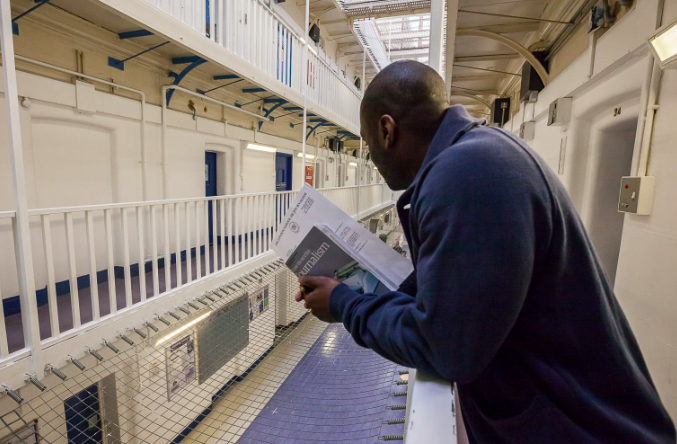UK penal reform charity The Howard League has pointed its stakeholders to study by the Commission on Crime and Gambling Related Harms which highlights the problematic culture of gambling in the UK’s prison system, with negative outcomes for inmates.
The study, titled “Exploring Gambling and its Role Within Prison Culture,” reveals that although gambling is not officially sanctioned in prison, it has become increasingly normalised in day-to-day life. Led by Lord Peter Goldsmith QC, the research involved 140 participants, including prisoners, staff, and family members of prisoners.
The study found that gambling served various purposes for prisoners, such as alleviating boredom, self-soothing, and building relationships. However, it also uncovered links between gambling and acts of bullying, manipulation, and violence within prisons.
The report recognises four sub-cultures relating to gambling activity, which led to negative consequences where some prisoners were forced to give favours, store drugs, or enforce violence, while others managed and enacted extreme violence and acts of humiliation.
The report calls for the HM Prison and Probation Service to review the role of gambling in prison and address related harms. The Howard League, a UK penal reform organisation, has highlighted the urgent need for a change in prison culture to address the harms caused by gambling within prisons. The report recommends increased awareness, education, and training for prison staff, healthy alternatives to gambling within prison regimes, and collaborative action with those who have lived experience of prison and gambling to encourage safe behaviour and reduce gambling-related harm.
The study also found that the prison environment was particularly detrimental to those already experiencing gambling-related harm and addiction, with further negative impacts on mental health, including depression, anxiety, self-harm, and suicide risks reported by prisoners and staff. Despite these issues, prison staff had limited awareness of gambling’s potential harms, with some even encouraging gambling between prisoners to build rapport or maintain calm.
Dr Sarah Lewis, Director of Prison Reform Solutions, said that the report “illuminates the relationship between prison culture and gambling-related harms, and demonstrates how cultural rules influence the way people in prison behave, as they strive to survive and seek meaning. It also highlights the urgent need to review prison regimes and the purpose of prison more broadly, so that gambling harms can be addressed across the prison system, through cultural change.”
Dr Liz Riley, Head of Research at Betknowmore UK, added: “This peer research project explored all the ways in which gambling is part of the culture of a male prison. It highlights the need for a change in culture so that gambling harms are better understood by staff and prisoners, with services put in place to support those in need.”
In conclusion, the report recommends immediate action to address the harmful effects of gambling in UK prisons and create a safer and more rehabilitative environment for all involved.



























